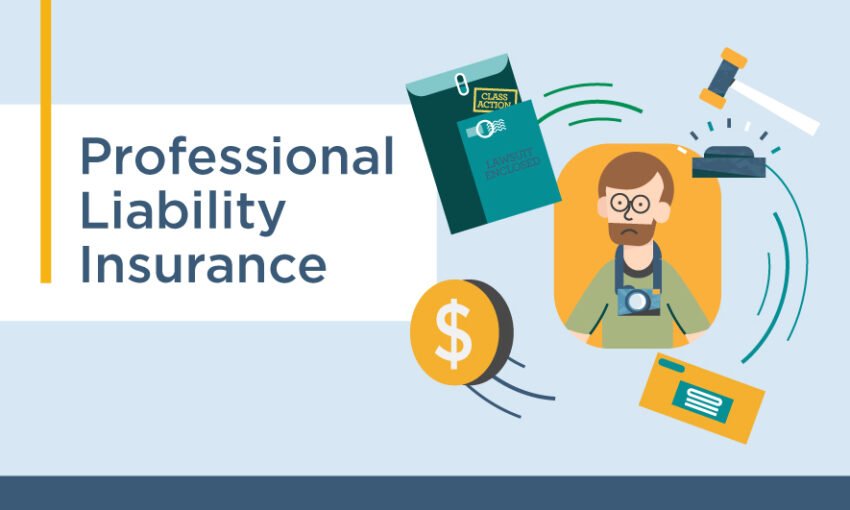Professional liability insurance (PLI) protects professionals such as accountants, lawyers, and physicians against negligence and other claims initiated by their clients. Professionals with expertise in a specific area require this type of insurance because general liability insurance policies do not offer protection against claims arising from negligence, malpractice, mistakes, or misrepresentation.
How Professional Liability Insurance Works
Depending on the type of business, professional liability insurance may have different names, such as medical malpractice insurance for the medical profession or errors and omissions insurance for real estate agents. Professional liability insurance is a specialty coverage not provided under homeowners’ endorsements, in-home business policies, or business owners’ policies.
Professional liability insurance policies are usually claims-made, which means coverage is good only for claims made and events occurring while the policy is active. You might also find occurrence policies, which means you’re covered if an incident occurred while you had coverage—even if you let your policy expire and a client files a claim against you after it expired. However, occurrence policies are rare in this field.
Typical professional liability policies will indemnify the insured against loss arising from any claim or claims made during the policy period because of any covered error, omission, or negligent act committed in the conduct of the insured’s professional business during the policy period.
What Is Included in Professional Liability Insurance?
Coverage does not include criminal prosecution, nor all forms of legal liability under civil law—only those listed in the policy.
Examples of liabilities not covered by PLI are:
- Employee injuries
- Employee discrimination lawsuits
- Vehicle business use
- Bodily injury
- Business property damage
- Customer injuries or damages
Examples of liabilities covered by PLI are:
- Mistakes, errors, and oversights in services provided
- Undelivered services
- Missed deadlines
- Negligence or failure to meet standards
- Breach of contract
- Defense costs
- Copyright infringement
Professional Liability Policy Wording
Professional liability policies tend to be worded differently between providers. Some might be expressed in ways that make them easier to compare, while others might differ enough that what appears to be the same coverage isn’t.
Wording with significant legal differences can be confusingly similar to non-lawyers. For example, consider these two phrases:
- Negligent act, error or omission
- Negligent act, negligent error, or negligent omission
Coverage for “negligent act, error or omission” indemnifies the policyholder against loss/circumstances incurred only as a result of any professional error or omission or a negligent act. A negligent error or negligent omission would not be covered because of the wording.
The “negligent act, negligent error, or negligent omission” clause is interpreted differently than the previous clause. For an error or omission to be covered, it must be determined to have been negligent and not simply an error or omission. If you wanted all five types of incidents to be covered, the clause might need to read “negligent acts, negligent errors, negligent omissions, errors, or omissions.”
How Much Does Professional Liability Insurance Cost?
How much you pay for this type of insurance will depend on the type of business you are in, as some industries are riskier than others. Additional factors include the geographic area you practice in; how many years you have been in business; the number of claims you’ve had against you in the past; and how many employees you have.
Like other types of insurance, coverage limits and deductibles also influence how much you’ll pay. According to insurance provider Insureon, the median cost for its clients’ professional liability insurance is $61 per month (or $735 annually), with most policies costing between $600 and $1,200 per year.
Policy liability limits allso vary significantly, typicallly ranging from $250,000 to $2 million or more. Many policies include limits of $1 million for a single claim (“per occurance”) and a $1 million “aggregate limit” that laststhe lifetime of the policy.
Who Needs Professional Liability Insurance?
If you work for a company that offers services, the company should have PLI, and your services should be covered under its policy. However, if you’re a small business owner or solo practitioner providing professional services or contracting your services to other businesses, you should consider purchasing this type of insurance. IPLI is also encouraged if you offer advice to clients. You may also be legally required to have coverage to work in your field.
Some examples of professionals who need this insurance are:
- Consultants
- Engineers
- Insurance agents
- Real estate agents
- Brokers
- Architects
- Accountants
- Information technology professionals
- Counselors
- Doctors and dentists
- Financial advisors
